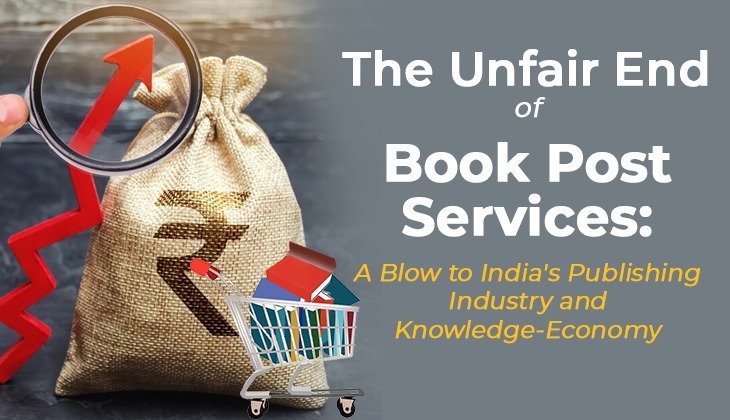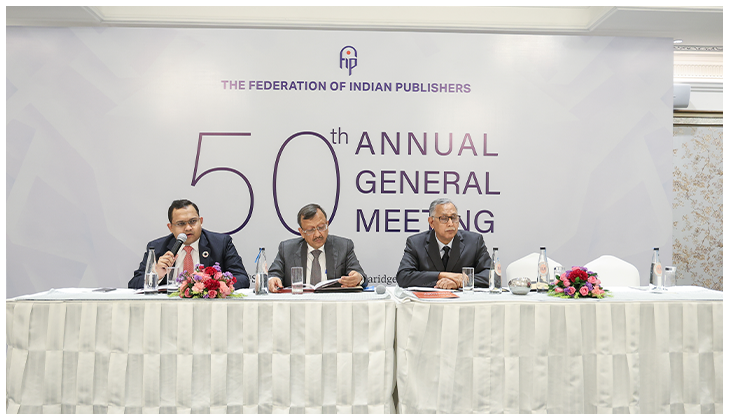The Central Board of Secondary Education (CBSE) had recently directed all the CBSE-affiliated schools to follow Circular No: Acad-07/2017 which was an attempt to make NCERT books available for the academic session of 2017-18. The letter stated that the textbooks will be supplied and printed by NCERT for all classes. Besides this, the letter also mentioned that the affiliated schools would be able to place official requests online.
What ensued right after was a handful of corrupt media companies, who carried articles, which misinterpreted the circular and provided incorrect information about the usage of NCERT books in all CBSE schools. The fraudulent article stated that CBSE had made it mandatory to use NCERT books for all classes. This of course resulted in a lot of confusion amongst all stakeholders, which included publishers, students, teachers and parents.
Well known publishers met the honorable Union Minister of Ministry of Human Resource Development (MHRD), Government of India Prakash Javadekar, who cleared the air, and ensured that the Ministry of HRD or CBSE had no intention to make NCERT books mandatory in CBSE schools. He also recognized the important role played by private publishers across India, and assured that no decision would be set in stone without the consensus of the masses or general public.
Who is the Best Judge for Content?
Schools and teachers are well equipped to decide what is best suited for the overall holistic development of their students. In an environment, which is extremely competitive, students are under constant pressure to improve, and hence there is a need to provide students with the best quality content in their formative years, which can help them cope with the pressures of college life.
Quality is Pivotal with Private Publishers
The role played by private publishers cannot be ignored or underestimated. In addition to providing high quality books, private publishers also support teachers by way of workshops, trainings, teacher resource material, digital content, web support, question papers, worksheets, etc. Besides this, the publishing industry employs the best of editors, digital content creators and developers as a part of their endeavour and commitment to create international quality books at the lowest possible price. In fact, you would be surprised to know that textbook prices in India are amongst the lowest in the world.
Quality Comes with a Price
Government textbooks are subsidised and hence they would always be priced lower than textbooks published by private publishers. The reason for this is that the publishing industry in India does not get any special incentive or subsidy from the government, even though it is committed towards contributing to the education of the future citizens of India and providing high quality textbooks.
Textbooks published by private publishers are made available on time as per the demands and requirements of schools, teachers and students across the country through its network of distributors and retailers, whereas NCERT continues to fail in this department. The publishing industry employs millions of professionals, directly and indirectly, who are striving hard to create and offer high quality content for the betterment of students and the country at large.
Spending money on buying quality books is an investment not only for a better future for the students and their families, but also for the country. It is time to seriously consider the implications of depriving students of good quality books, which prevents them from competing with the best in the world.
NCERT Books
Advantages –
- They are written by a panel of eminent teachers.
- They are in sync with the school syllabus
- They are available at a very low cost.
- They are lightweight and easy to carry.
Disadvantages –
- Their precise content creates a problem for the slow learners.
- They contain very less illustrations, samples and exercises.
- Availability has always been an issue in the past.
Private Publishers Textbooks
Advantages –
- They are written by eminent teachers.
- They are full of illustrations, samples, exercises, which prove to be both helpful, as well as challenging
- They are readily available.
Disadvantages –
- They are heavy in weight and difficult to carry.
- Due to more study material their cost is high.



